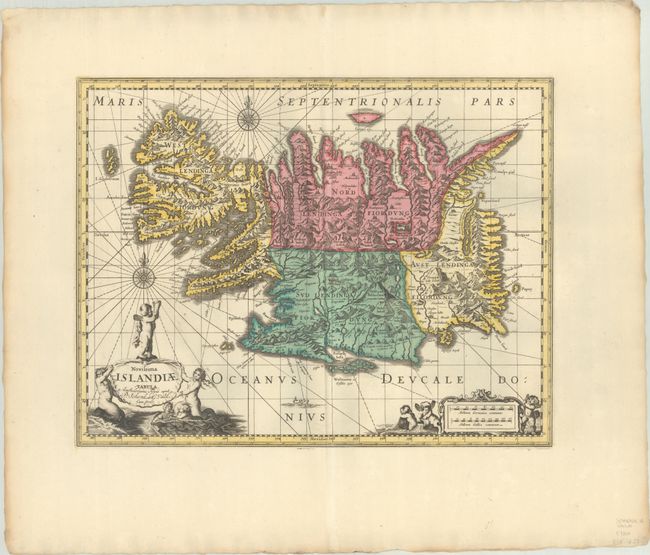Catalog Archive


Auction 194, Lot 376
"Novissima Islandiae Tabula", Blaeu/Valck & Schenk

Subject: Iceland
Period: 1700 (circa)
Publication:
Color: Hand Color
Size:
19 x 14.7 inches
48.3 x 37.3 cm
Download High Resolution Image
(or just click on image to launch the Zoom viewer)
(or just click on image to launch the Zoom viewer)